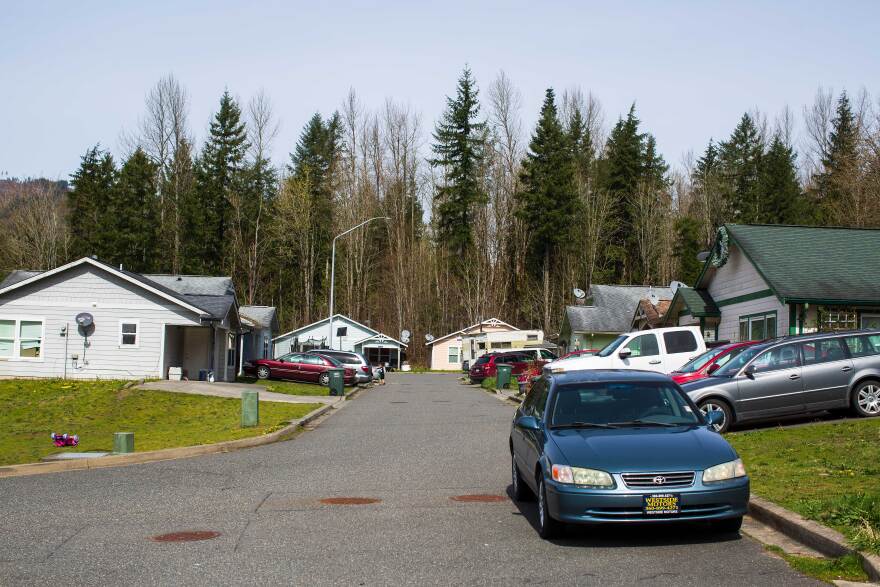Early on a snowy morning, Michelle Roberts prepared for a hearing in tribal court. The stakes were high: The hearing could determine whether Roberts gets to keep the home she’s been living in for 15 years.
But first she attended to her father – Michael Rabang. He lives across the street and could also be evicted. Her aunt and uncle are also threatened with eviction.
Rabang doesn’t understand he could soon lose his home. At 80, he’s living with dementia. But like his daughter, Rabang is among a group of people who the Nooksack say were mistakenly enrolled in the tribe.
Roberts said for more than 50 years she’s thought of herself as Nooksack, and just can’t come to terms with the possibility of tribal disenrollment.
"I can't pack because that means I accepted it. It's like I'm not accepting it. I just can't," she said.
Altogether, the Nooksack Tribe, based in Deming, Washington, just south of the Canadian border, is demanding that about 60 residents, who’ve all been making payments on their houses under a federal low-income housing program, leave their homes and tribal land.

Rickie Armstrong is the attorney representing the tribe. At the hearing over Zoom, he told the judge the reason the tribe is kicking these residents out is simple.
"They did not provide proof of enrollment with a federally recognized Indian tribe," Armstrong said.
Armstrong said properly enrolled Nooksack members need that housing.
"The three defendants herein are holding up the tribe from moving forward on a waiting list of 60 homeless Nooksack tribal member families. They’ve been doing this for over 10 years now," he said.
Over the years, Roberts and others have fought to keep their homes. They’ve appealed to the Washington state Supreme Court and even the United Nations.
In November, the U.S. Department of Housing and Urban Development told Nooksack leaders it had concerns Roberts and others were being denied a fair process.
At the tribal court hearing, Roberts’ aunt – Billie Rabang – said her family haven’t even been able to find a lawyer authorized to represent them in tribal court.
"The lack of legal representation has stunted us, just I mean, we can't, we don't understand, and what we're supposed to be doing," she told the judge.
So Roberts testified for herself and her family to the best of her ability.
"Well, it takes a village to raise, to take care of our elders. And we all take care of each other here. That's why we're here, to not only, you know, fighting for our identity, fighting for our houses, fighting for everything, anything that we can to, to stay together," Roberts said.
Like other Nooksack members being threatened with eviction, Roberts and her family are both Filipino and Native American, or what some call Indipino.

David Wilkins, a professor at the University of Richmond in Virginia who focuses on Native American issues, said tribal disenrollments often happen due to fights over casino revenues. But he thinks discrimination is at play here.
"In the Nooksack situation see there, that's where family squabbles and racism are the two major factors rather than money issues," Wilkins said. "They still treat them as second class citizens."
Others in the community are concerned the tribe’s actions could have long term consequences.
One of them is a neighbor of Roberts and her family: Hameesh Jimmy. Seated at a local restaurant, she said what’s happening is unfair.
"I don't think that we're going to be able to heal from this. It's a huge, traumatic experience that's been going on for years," Jimmy said.
Jimmy said this whole ordeal has left many Nooksack – even those not being threatened with disenrollment – feeling like their land isn’t home anymore.







